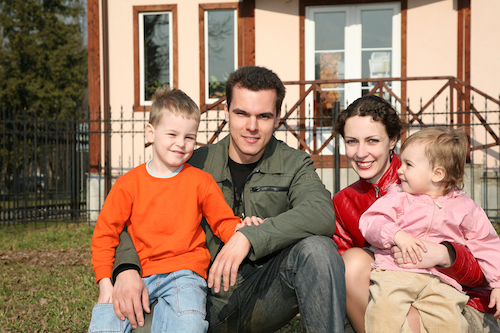 It’s that time of year when fathers across the country prepare themselves for a breakfast in bed, a gift of a new tie or pair of socks and some quality time with their families to mark Father’s Day.
It’s that time of year when fathers across the country prepare themselves for a breakfast in bed, a gift of a new tie or pair of socks and some quality time with their families to mark Father’s Day.
Many fathers would recognise that spending time with their children is an important factor in building a strong relationship. But now researchers at the University of Georgia have found that the type of activities fathers and children engage in, and the timing of those activities, influences the quality of the father-child relationship during the early years of a child’s life.
“We found that the associations between father involvement and father-child attachment relationship quality differed greatly depending on what type of activities fathers were doing and when they happened. On non-workdays fathers' play was the most important for developing a secure attachment relationship, whereas on workdays fathers' caregiving was most important,” Geoffrey Brown, an assistant professor in the UGA College of Family and Consumer Sciences and author of the study, told Theravive.
“We know quite a bit about how early mother-child attachment relationships are formed, but much less about what is responsible for the father-child attachment relationship. Fathers are often encouraged to spend more time with their children, which is generally good advice, but previous research has not found strong associations between overall father involvement and the quality of the father-child attachment relationship. So we wanted to know whether the importance of fathers' time with children for the early father-child relationship depended on the type of activities they engaged in (caregiving vs. play) and/or when that involvement occurred (workdays vs. non-workdays),” Brown said.
“We think this is important because we want to understand specifically what aspects of father involvement and father-child interactions are most likely to promote good relationships in early childhood, and what we can do to maximize fathers' benefits to their young children's development.”
In early childhood, children form an important emotional bond with those caring for them. This is referred to as the attachment relationship. This form of relationship not only provides comfort, safety and security for a child, but also models how relationships should be. There has been significant amounts of research on attachment relationships between mother and child, but less on father and child and how that attachment relationship is established.
In undertaking his research, Brown and his colleagues enlisted 80 pairs of fathers and children, when the children were aged around three years old. The team observed the pairs together interaction in the home, conducted interviews and also filmed videos of the pair interacting.
The findings of the study, published in the Journal of Family Psychology, show that fathers who spend time with their children on days they are not at work are developing strong relationships. In particular, fathers who engage in play activities with their children on non-work days are establishing a good father-child relationship.
“Fathers who are choosing to spend their time in play activities (particularly on non-workdays when time is usually more flexible) might be showing both their children and their partners that they are highly committed to the parenting role, which can have positive implications for both father-child and couple relationships. We also know that fathers generally spend a greater proportion of their time in play activities than do mothers, and that fathers play with children in different ways than mothers do. So play time seems to be a particularly important context for building that early relationship between fathers and their young children,” Brown said.
The research also found that fathers who assist in child care related tasks on work days are developing the best relationships with their children. Brown says it is important fathers try and engage in both play and caregiving behaviours with their young children.
“Fathers who engage in a wide variety of parenting behaviors, and those who can adjust their parenting to suit the particular needs of their child and family on a given day are the most likely to foster good relationships with their children,” Brown said.
“So the best thing that fathers can do -- particularly with babies and young children -- is to make their time count. Be sensitive and responsive to your child's needs, be present and engaged, show warmth and positive emotion, and generally try to take pleasure in interacting with your child. Fathers who are able to do that are the most likely to develop good relationships with their children even if they aren't able to spend every minute with them.”
Elizabeth Pratt is a medical journalist and producer. Her work has appeared on Healthline, The Huffington Post, Fox News, The Australian Broadcasting Corporation, The Sydney Morning Herald, News.com.au, Escape, The Cusp and Skyscanner. You can read more of her articles here. Or learn more about Elizabeth and contact her via her LinkedIn and Twitter profiles.